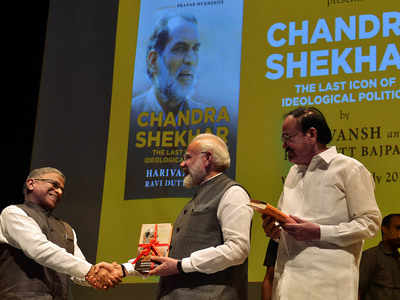INDIA@2047: ROLE OF PUBLISHING IN NATION BUILDING
Perspective from NBTon Aug 09, 2023

Yuvraj Malik
Director
National Book Trust, India
Publishing in General
Publishing plays a central and integral role in the ecosystem of education. It plays a pivotal role
in the contemporary world, serving as a gateway for the dissemination of knowledge, ideas, and
entertainment, encompassing the production, distribution, and promotion of written, visual, and
digital content to a wide audience. New ideas, concepts, and research work get created by
content makers or authors. The structure of publishing provides the necessary inputs and makes
value additions to turn the content into readable books and make them available to readers at
large.
It plays an important role in national integration through translations. The translation
works and our vibrant publishing culture impact or play a role in the making of global citizens
out of children and young adults. This, in the long term, provides employment opportunities to
skilled professionals, such as publishers, authors, artists, production executives, designers,
marketing executives, librarians, etc.
The Indian publishing industry has witnessed substantial growth and diversification,
catering to a vast and multilingual population. With a rich literary heritage and a growing
appetite for reading, India offers fertile ground for publishers. As per the report of the
Association of Publishers of India and EY-Parthenon (May 2021), “The Indian publishing
industry was estimated to be approximately INR 500 billion in 2019, with a growth potential of
INR 800 billion by 2024. The industry contributes to India’s economic development, not only by
promoting learning and education, but also by creating employment for more than 1.2 million
people.”
In this context, the relevance of the role of a national body like the National Book Trust,
India (NBT) has become all the more pronounced. As a large part of the population becomes
literate, it is crucial to equip them with a necessary reading support system to create a more
thriving reading culture as we march towards 100 years of India’s independence in 2047.
About NBT
NBT is an autonomous body established by the Government of India (Department of Higher
Education, Ministry of Education) in 1957. It is an organisation working towards the promotion
of books and reading habits in the country by organising book fairs and exhibitions. NBT pays
special attention to those genres which are not adequately covered by other publishers. These
relate to books on popular science, the land and the people of India, biographies, books for
children and young adults, and books in Braille, designed especially for general readers. The
organisation promotes Indian books abroad, assists authors and publishers, and promotes
children’s literature through its National Centre for Children’s Literature (NCCL).
NBT has been organising the New Delhi World Book Fair since 1972, which has
developed into a dynamic platform for the entire publishing ecosystem in India and abroad. To
create a pool of trained professionals for the publishing industry, the Trust conducts a
month-long Training Course in Book Publishing, and now it has collaborated with various
universities in many states to organise the Training Course in Publishing.
NBT’s Role in Nation Building
One of the primary ways in which NBT contributes to nation-building is by fostering a reading
culture. Through its various initiatives, such as the National Book Fair and book exhibitions,
NBT strives to create awareness about the importance of reading and the value of books. By
encouraging reading habits, NBT aims to enhance knowledge, critical thinking, and imagination
among the populace, thereby empowering individuals and strengthening the fabric of society. It
also plays a crucial role in not only promoting Indian literature and culture but also making its
own contribution towards national integration.
NBT is one of the largest multilingual publishing bodies globally that publishes books in
more than 50 Indian languages, including English and Hindi, thus preserving and promoting the
rich literary heritage of our country. By publishing books in regional languages, the Trust helps
establish a modern publishing ecosystem in terms of quality of books, editorial practices,
translations, and production parameters. In this sense, NBT ensures that diverse voices and
narratives are represented, fostering inclusivity and celebrating the cultural diversity of the
nation. Furthermore, NBT plays an active role in making books accessible to all sections of
society, particularly underserved communities.
The journey of the Trust in developing trained professionals to look after its publishing
programmes in various Indian languages is also the journey of the development of generations of
authors, storytellers, folklorists, artists, illustrators, copy-editors, proofreaders, photo editors, and
others in various Indian languages. Right from the start, the authors and artists associated with
NBT represented a veritable who’s who of the Indian scholarly world who were willing and
proud to disseminate their research in the fields of social sciences, arts, culture, popular science,
and folklore by making the content as non-technical as possible for the general reader. Similarly,
the best creative minds, even if not specifically associated with children’s literature, were
approached as part of a national project to ‘make it new’ for new generations of Indians being
brought up under the ideals of justice, democracy, equality, liberty, freedom, and scientific
temper, as enshrined in the Constitution since the inception of the Trust.
Conclusion
In conclusion, publishing plays an indispensable role in education, knowledge dissemination, and
entertainment. The Indian publishing industry has experienced remarkable growth, capitalising
on the nation’s rich literary heritage and the increasing appetite for reading.
NBT has been able to make a pioneering contribution to the making of Indian publishing
and the literary ecosystem in the post-independence era due to its original twin mandate: to
publish good-quality books on the one hand and to create a culture of reading and foster
book-mindedness on the other. Accordingly, NBT may have been the first to introduce a
developed concept of book-mindedness, described as the ‘predisposition towards or interest in
books’, in the modern Indian milieu. The Trust’s dedication to fostering a love for learning,
imagination, and leisure reading through captivating titles and translations is a testament to its
role in contributing to the intellectual, social, and cultural development of the country, which are
core components of the nation-building process.



.jpg)






.jpg)

.jpg)
.jpg)
.jpg)
.jpg)
.jpg)










Sorry! No comment found for this post.